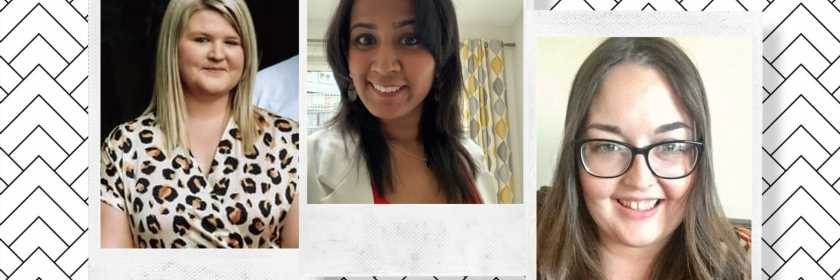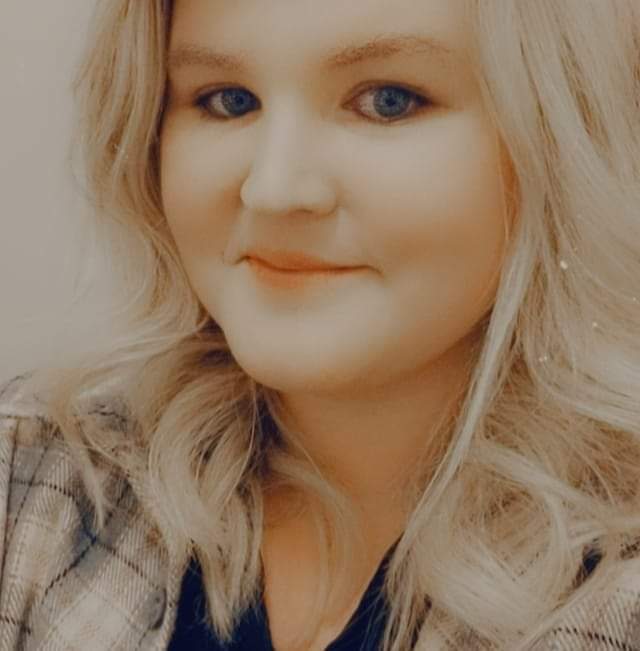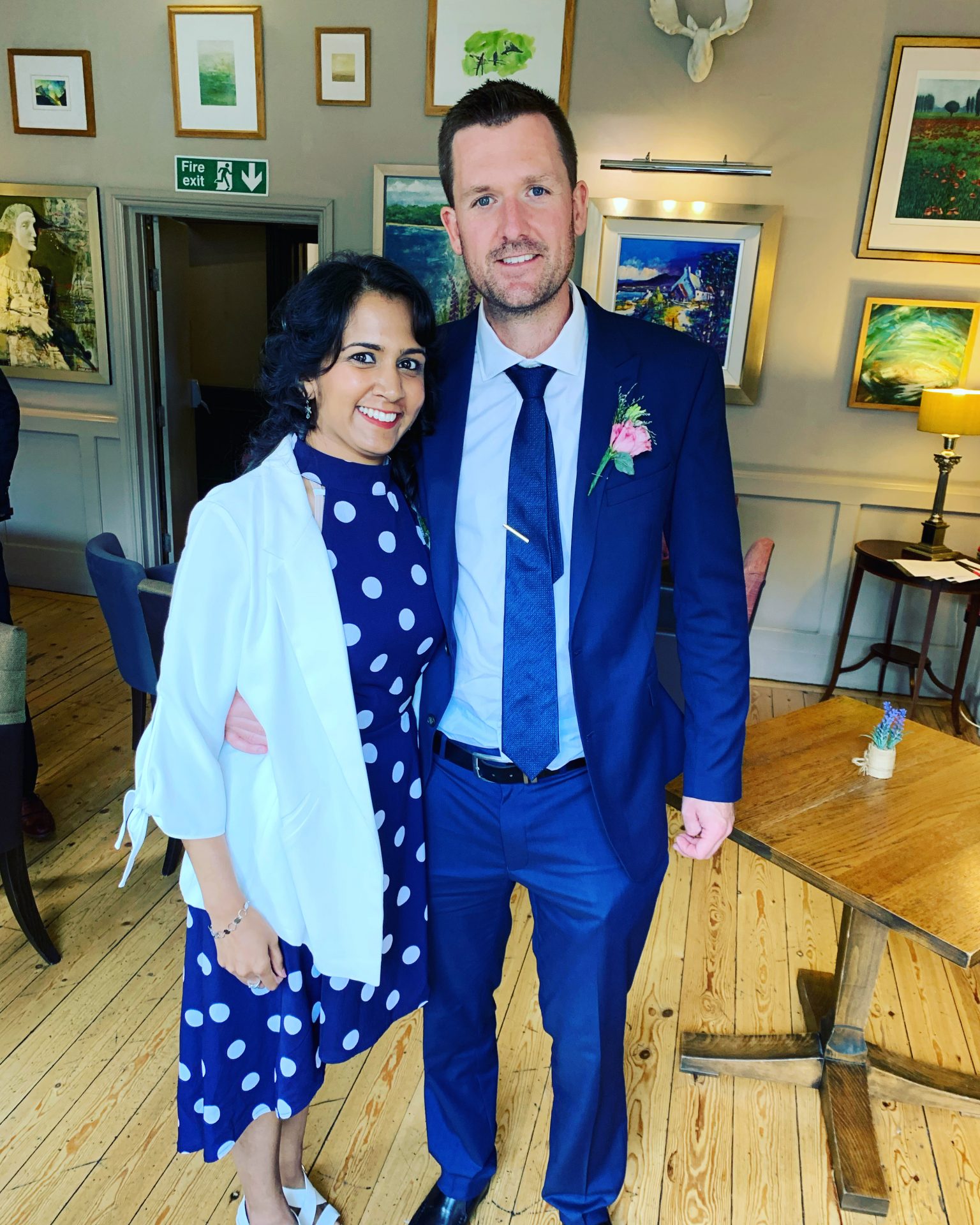“It feels like a ticking time bomb”: 3 women on being diagnosed with a life-changing brain tumour

Written by Lauren Crosby Medlicott
To mark National Brain Tumour Awareness Month, Stylist speaks to three young women whose lives have been changed forever by an unexpected brain tumour diagnosis.
At least 88,000 people are currently living with a brain tumour in the UK. Although they tend to be more common in older adults, brain tumours can also affect younger people, and are responsible for more deaths of those under 40 than any other cancer – a daunting diagnosis for someone with many years of life still ahead of them.
To mark National Brain Tumour Awareness Month, which runs throughout March 2022, Stylist spoke to three young women whose lives were turned upside down by an unexpected brain tumour diagnosis.
Emily’s brain tumour story
Just two weeks after Emily Blunt gave birth to her second child in 2016, she started hearing constant ringing in her ears. “I just thought I was coming down with something,” Emily remembers. “But two weeks later it didn’t go away and was becoming more prominent.”
When Emily, aged 26 at the time, went to her local GP, a student doctor suggested she be referred immediately to an ear, nose and throat (ENT) specialist, but the overseeing doctor stepped in and decided to send Emily home with ear drops, suspecting she had an infection.
Over the next six months, Emily started to have tremors, felt off-balance and experienced unusual amounts of anxiety. “The doctors said it was because I was a new mum and had a history of anxiety,” she says. “They actually prescribed me beta-blockers. I felt I was going out of my mind.”

Fed up with being dismissed, Emily changed doctors and was immediately referred to an ENT specialist. When they initially checked her over, everything looked normal, but they offered her an MRI scan. “I remembered watching First Dates on telly and there was someone who had a ringing in one ear that had been later diagnosed with a brain tumour,” Emily says. “That memory pushed me into saying I wanted the MRI.”
After the MRI, Emily was sent a hospital appointment letter. “I thought it was tinnitus,” she says. “But as soon as I walked in the room, I could tell from the doctor’s face it wasn’t going to be good news. He said they had found something on the scan they thought was a brain tumour.”
A week later, Emily had the call confirming she had a tumour in the right temporal side of her brain. “I burst into tears,” Emily recalls. “My main thought was that I was going to die and leave my children behind.” Unfortunately, the tumour was too deep for doctors to biopsy or remove, so they would have to wait it out with a scan every three months and hope for the best.
Five years later, Emily still has the tumour. “It feels a bit like a ticking time bomb,” she says, knowing that doctors will suggest chemotherapy and radiation if the tumour begins to change. “I’m constantly waiting for that one scan where they say there has been a change. But I’m relieved they are keeping a close eye on it.”
“The signs and symptoms of brain tumours can vary greatly from person to person due to a number of factors including the type of tumour and where in the brain it is located,” Eve Kelleher, head of services at The Brain Tumour Charity, tells Stylist.
“The most common warning signs in adults are headaches, changes in vision, seizures, nausea or sickness, loss of taste or smell and fatigue.” If these symptoms get more intense or happen more regularly over time, it’s time to get in touch with a GP to figure out what may be going on.
“Although brain tumours are rare, if you’re aware of the signs and symptoms, you can make sure you get checked out as soon as possible, increasing the likelihood of early intervention, often a combination of surgery and radiotherapy and chemotherapy,” says Kelleher.
Yvette’s brain tumour story
When Yvette De Souza, 36, started feeling tingling in her right foot and hands in January 2020, she initially blamed strained muscles in her back. However, weeks passed and the tingling remained.
She contacted her GP, who agreed it was most likely a result of her back pain, but sent her for a carpal tunnel test just in case. The tests came back negative, leaving Yvette confused.
She used her work’s private healthcare to find out what was going on. When a neurologist conducted a brain scan, he called her in for a follow-up appointment to deliver the news Yvette would never have expected.
“He said I had a tumour the size of a tennis ball in my brain,” Yvette tells Stylist. “I remember gasping so loudly. Tears were flooding down me.”

Weeks later, on a Monday in March 2020, Yvette had her first hospital appointment, where she was told removing the tumour was her best option. “I was petrified,” Yvette says. The surgeon booked her in for brain surgery to remove the tumour four days later.
“I got all ready for the surgery, which was traumatic in itself,” remembers Yvette. “Being dropped off at the hospital I was in tears knowing I was about to have my brain cut open.”
Unfortunately, on the day of the surgery, it had to be postponed because of a lack of ICU beds as a result of Covid-19. Yvette packed up her things, went home and a week later, on her birthday, was told to come back to the hospital. “The greatest birthday present I could get,” she jokes.
When Yvette woke after surgery and couldn’t pick up a cup of tea or drink a cup of water, she started to worry about life after a major operation on her brain. “I was just thinking – this is my life,” she says. “My whole future is now being questioned. What am I going to be like? Am I going to be in a wheelchair? Am I going to be able to dance again? Will I be able to walk down the aisle? Will I have children?”
She slowly started to regain her strength but was hit with another piece of bad news weeks after her surgery: her tumour was cancerous, aggressive and she only had a few years left to live.
Yvette was thrown into six weeks of radiotherapy, followed by 12 rounds of chemotherapy. “When I started to lose my hair, it was upsetting,” she recalls. “Clumps of it started coming out. I was in tears in the shower, holding it in my hand. I looked in the mirror just thinking it wasn’t me. I hated what I was seeing.”
One of the hardest things Yvette has had to come to terms with is the possibility she and her partner may not be able to have children. “He said I was the most important person at this point and we needed to get me sorted. If that meant we couldn’t have kids in the future, that was fine. He was very supportive.”
Many young women diagnosed with brain tumours worry about the impact on their fertility. “Women can choose to have their eggs frozen – however, this isn’t always possible if urgent treatment is required,” says Kelleher. “Chemotherapy or radiotherapy wouldn’t necessarily mean the person won’t go on to have children, but some options do come with a risk of reducing fertility levels.”

Now Yvette’s treatments have ended, she attends regular scans to check there is no change. “In December, there was a little bit of growth. The doctor told me not to worry about it, but obviously, you start worrying straight away.”
But Yvette refuses to let fear rule her. “I’m not going to crawl under my bed and cry myself to sleep. That’s not going to keep me here longer. I might as well face this head-on.”
Recovery is different for every individual, depending on where the tumour is located and what bodily function that part of the brain controls. “All types of treatment for brain tumours come with significant risk,” explains Kelleher. “Some people feel better almost instantly. Others have a more difficult recovery which could mean re-learning to do the most basic tasks, such as walking.”
Chelsea’s brain tumour story
Chelsea Spencer closed the door of her London flat in 2018, relieved to arrive home after another day at work. For weeks, the 26-year-old had been feeling increasingly fatigued. “I couldn’t account for what it was,” Chelsea tells Stylist. “I went to my doctors and they didn’t seem too concerned. I just put it down to the stress of work.”
Soon after the debilitating tiredness, Chelsea started experiencing intense pins and needles in her head, along with headaches and disorientation. Her doctor ran some tests, but when everything came back normal, they signed her off work to rest.
Chelsea took the time off to visit her mum in Staffordshire for a week. “When I was there, my mum said my temperament wasn’t the same,” she remembers. “I was quite short with people – not as I normally was.”

A couple of weekends later, Chelsea went to stay with her boyfriend and had her first seizure in the middle of the night. “I completely blacked out,” Chelsea says. “My boyfriend described it as something from The Exorcist. I would throw myself up and then back down in bed. My eyes were open but glazed and I was pointing and screaming.”
She was taken to hospital but sent home and told healthy people can have one-off seizures. Two weeks later, she had another. When finally given a scan, Chelsea found out she had a large mass on the right side of her brain.
In June 2018, Chelsea was wheeled into surgery and a team removed 70% of the tumour. She thought the 12-hour operation was the end of her brain tumour journey, but she was later told the tumour was cancerous.
“I remember thinking straight-away that I was going to smash this,” Chelsea says. “It was a scary appointment, but I knew I just had to get through it.” For nearly a year, Chelsea underwent radiotherapy and 12 courses of chemotherapy, finishing her treatment in September 2019.
During her cancer treatment, she moved in with her boyfriend and her mother stayed with them to help. Right now, Chelsea’s tumour is stable, and she hopes that doesn’t change.
“Life after treatment can be even harder,” Chelsea says. “After everything stops, you’re not going to hospital all the time and you haven’t got the fanfare around you. I didn’t have a job, but I still didn’t feel normal or back to myself.”
Even though Chelsea has “down days”, she considers herself a fighter. “I will never underestimate myself again,” she says proudly. “It was bloody tough, but I did it.”
Images: Emily Blunt, Yvette De Souza, Chelsea Spencer
Source: Read Full Article